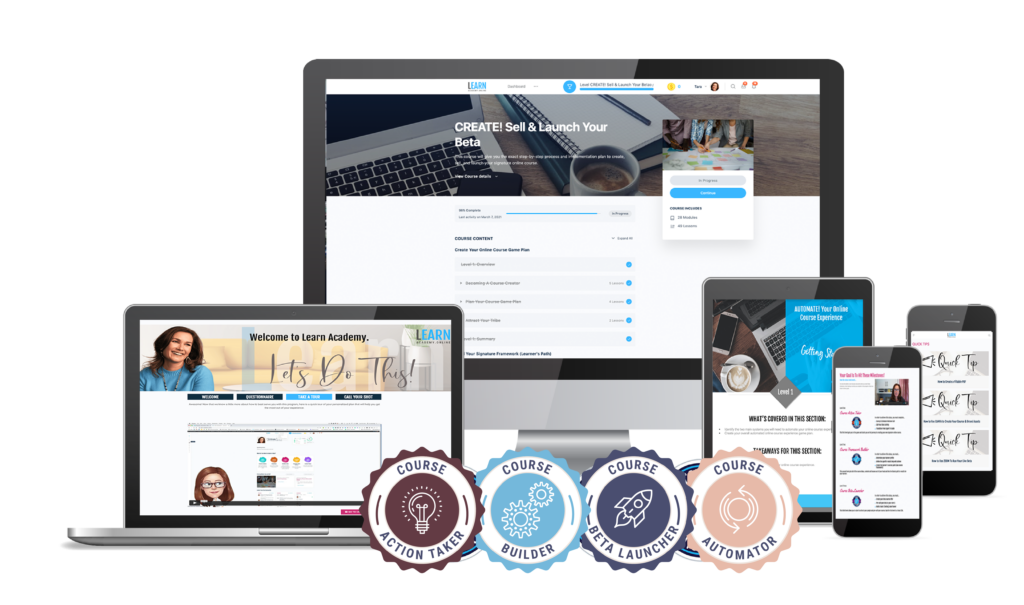The Success That Felt Like Failure
Picture this: You’re making more money than you ever made in your traditional corporate job. Your business is “successful” by every external measure. Clients are happy, testimonials are glowing, and your bank account looks healthy. But you’re crying in your car before client calls, googling “how to sell my business” at 2 AM, and wondering if this is what success is supposed to feel like.
If this sounds familiar, you’re not alone.
In this week’s podcast episode, I shared the raw truth about my own burnout story – and more importantly, the unconventional scaling method that led me out of it.
But there’s so much more to unpack about this journey that goes beyond what we could cover in a single episode.
The Hidden Cost of Traditional Success
When I calculated my true hourly rate during my burnout phase, the number was shocking. Despite making high-six/seven figures, I was earning less per hour than my corporate salary – while working twice as hard and carrying all the risk.
But the financial reality was just the tip of the iceberg. The real cost was what psychologists call “success depression” – the profound emptiness that comes when external achievements don’t align with internal fulfillment.
The Three Pillars of Service Provider Burnout
Through my own experience and working with hundreds of service providers since, I’ve identified three core factors that create this burnout cycle:
1. The Scalability Ceiling Every service provider hits a point where they can’t take on more clients without working more hours. This creates a psychological trap – you can see the ceiling approaching, but traditional scaling advice doesn’t seem to fit your business model.
2. The Expertise Prison Your knowledge becomes your prison when it’s locked in a one-to-one delivery model. You know you could help more people, but you can’t figure out how to share your expertise without losing the personal touch that makes it valuable.
3. The Reinvention Fatigue Constantly creating custom solutions for similar problems is exhausting. You find yourself reinventing the wheel for each client, even when the underlying challenges are remarkably similar.
Why the Standard Scaling Playbook Fails Service Providers
During the podcast, I mentioned my attempt at listening to the industry advice of creating a traditional online course. But let me dig deeper into why this approach fails so consistently for service providers.
The Information vs. Transformation Gap
The online education industry has trained people to expect transformation from information consumption. But information without implementation is just entertainment. When people don’t get results from your course, they don’t blame the implementation gap – they blame you.
This is why course completion rates hover around 3%. It’s not because the information is bad; it’s because information alone doesn’t create change.
The Commoditization Trap
When you package your expertise as generic information, you’re competing with every other expert in your field who’s done the same thing.
Your unique approach – the way you think, the questions you ask, the sequence you follow – gets lost in the commoditization.
The Support Expectation Mismatch
Today’s consumers want the personal attention of high-end services at the price point of digital products.
This creates an impossible expectation: They want transformation-level results with information-level investment and effort.
The Infinite Scale Method™: the Unconventional Scaling Method Deep Dive
The methodology I developed – which I call the Infinite Scale Method™ – isn’t just about scaling revenue. It’s about scaling impact while maintaining the elements that make your work transformational.
Beyond the Six Strategies: The Psychology of Scalable Intimacy
In the podcast, I outlined six core strategies, but let me expand on the psychological principles that make this approach work:
Principle 1: Methodology Over Personality While your personality attracts people to your work, your methodology transforms them. By documenting and systematizing your approach, you create something that can be delivered consistently regardless of your personal involvement in every detail.
Principle 2: Community Over Isolation Traditional one-on-one work isolates clients in their transformation journey. Group-based methodologies create peer learning, accountability, and support that often accelerate results beyond what individual work can achieve.
Principle 3: Process Over Perfection Your methodology doesn’t need to be perfect; it needs to be systematic. Clients get better results from following a good process consistently than from receiving perfect advice they don’t implement.
The Ripple Effects Nobody Talks About
Scaling using the Infinite Scale Method™ creates ripple effects that extend far beyond your business metrics:
Enhanced Client Results
When people follow a proven methodology with peer support and accountability, they implement more consistently and achieve better outcomes. My clients’ success rates improved dramatically when I shifted from custom consulting to systematic methodology delivery.
Industry Authority
Instead of being another service provider in your space, you become the person with the method. This positions you as a thought leader and makes competition largely irrelevant.
Sustainable Energy
Working within a systematic methodology is energizing rather than draining. Instead of constantly creating new solutions, you’re refining and optimizing a proven approach.
Compounding Expertise
Every client who goes through your methodology provides data points that make the system better. Your expertise compounds rather than depletes.
The Dark Side of Scaling (That Nobody Warns You About)
While the podcast focused on the positive transformation, there are challenges to scaling that are rarely discussed:
The Identity Shift
Moving from “expert who solves problems” to “methodology creator who guides transformation” requires a fundamental identity shift. Some service providers struggle with this transition because their self-worth is tied to being the person with all the answers.
The Control Paradox
Scaling requires letting go of control over individual outcomes while maintaining responsibility for systematic results. This can be psychologically challenging for perfectionists and control-oriented service providers.
The Quality Concerns
Every service provider worries that scaling will diminish quality. The truth is, systematic methodology delivery often improves quality because it removes the variability of custom approaches.
Advanced Implementation Strategies
For those ready to move beyond the basic strategies outlined in the podcast, here are some advanced approaches:
The Diagnostic-Driven Methodology
Instead of starting with your solution, start with a comprehensive diagnostic that reveals the specific challenges your methodology addresses. This creates urgency and positions your approach as the logical next step.
The Cohort Intensity Model
Rather than always-open enrollment, create limited cohorts that go through your methodology together. This creates scarcity, improves peer connections, and allows you to refine the system between cohorts. Then when you are ready, transition to infinite enrollment.
The Certification Extension
Once your methodology is proven, consider creating a certification program that allows other qualified practitioners to deliver your method under license. This creates additional revenue streams while expanding your reach exponentially.
The Questions That Changed Everything
In the podcast, I mentioned the client question that sparked my breakthrough: “Can we work through YOUR process with YOUR guidance?” But there were other pivotal questions that shaped this journey that lead to a more unconventional scaling method:
- “What if my methodology is more valuable than my time?”
- “How can I serve more people without serving them less?”
- “What would happen if I trusted that my process works without my constant involvement?”
- “How can I create transformation experiences rather than information products?”
These questions might seem simple, but they represent fundamental shifts in how we think about service delivery and scaling.
Your Next Steps (Beyond the Podcast)
If the podcast episode resonated with you, here are specific next steps to begin your own transformation:
Week 1: The Methodology Audit
Don’t just document your process – audit it. Look for:
- Steps you take that clients don’t see
- Questions you ask that reveal important insights
- Frameworks you use unconsciously
- Sequences that seem to work better than others
- Common problems that require similar solutions
Week 2: The Transformation Definition
Get specific about the transformation you create:
- What is the before state of your ideal client?
- What is the after state you help them achieve?
- What are the specific milestones along the way?
- How do you know when the transformation is complete?
- What enables some clients to get better results than others?
Week 3: The Delivery Experiment
Design a small test of your methodology:
- Choose 3-5 people to go through your process
- Document every interaction and outcome
- Ask for detailed feedback about the experience
- Identify what worked and what needs refinement
- Calculate the time investment versus traditional delivery
The Conversation Continues
This article only scratches the surface of the transformation possible when you shift from trading time for money to scaling methodology for impact.
The podcast episode dives deeper into the emotional journey and tactical implementation, but the real learning happens when you start experimenting with these concepts in your own business.
What questions does this raise for you? What aspects of your own business feel similar to my burnout story? And most importantly, what would be possible if you trusted that your expertise could serve more people without requiring more of your time?
The conversation doesn’t end with this article or the podcast episode – it begins with the actions you take next.
Ready to discover your own scalable methodology? Listen to the full podcast episode for additional strategies and Schedule a discovery call with Tara.
Resources Mentioned:
- Harvard Business Review study on entrepreneur burnout
- Infinite Scale Method™ case study collection






